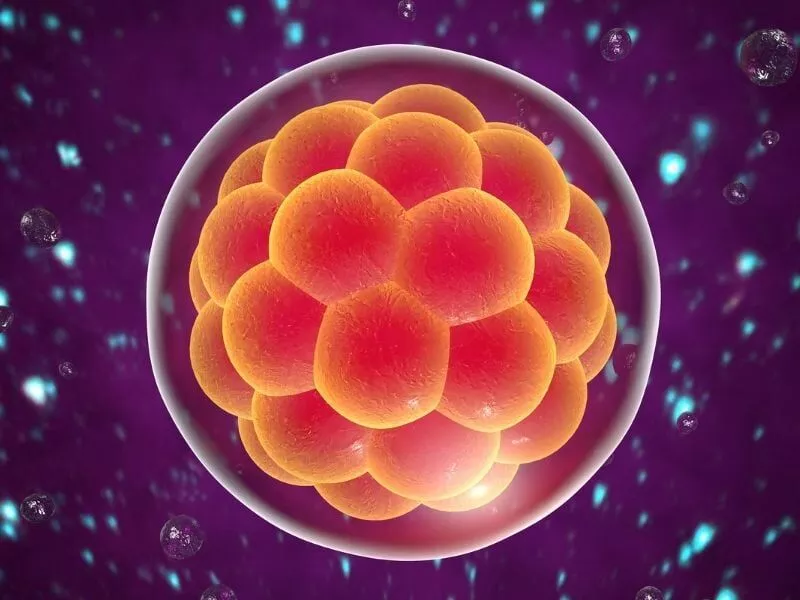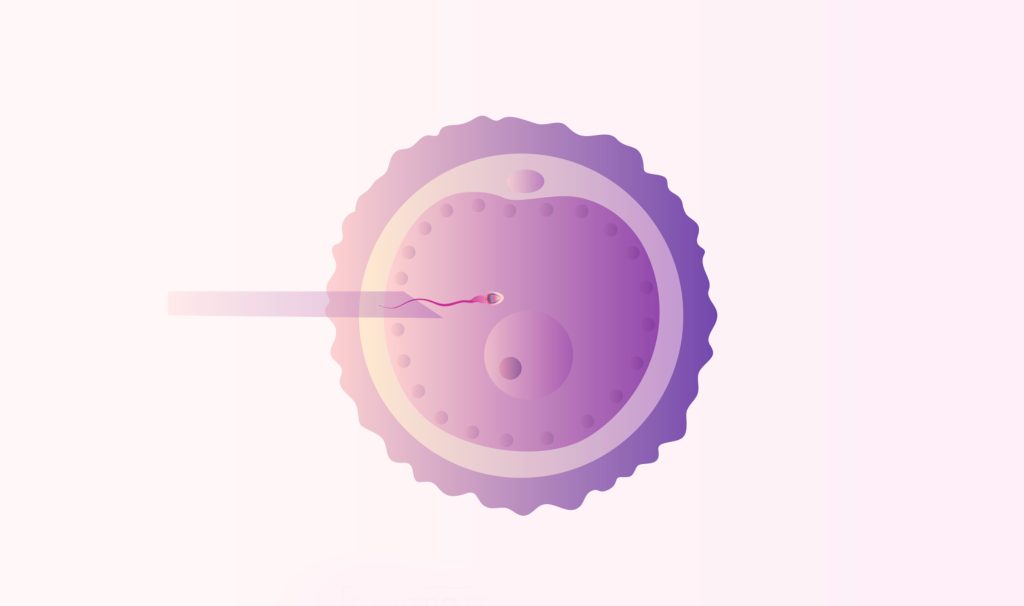
Embryo transfer is a pivotal step in the IVF journey and marks the beginning of a hopeful phase towards parenthood. Proper preparation can significantly increase the likelihood of a successful implantation and a healthy pregnancy. In this guide, we’ll outline essential steps, tips, and frequently asked questions to help you feel confident and ready.
Key Steps to Prepare for Embryo Transfer
Preparing for embryo transfer involves addressing physical, mental, and lifestyle aspects to create an optimal environment for the embryo. Let’s explore the key areas:
Nutrition Tips for Optimal Uterine Health
- Focus on a Balanced Diet: Include plenty of fruits, vegetables, whole grains, lean proteins, and healthy fats. Foods rich in antioxidants, such as berries and nuts, help reduce oxidative stress.
- Increase Iron Intake: Iron-rich foods like spinach, lentils, and fortified cereals support uterine lining health.
- Stay Hydrated: Aim for at least 8-10 glasses of water daily to ensure proper blood flow to the uterus.
- Limit Processed Foods: Minimize intake of sugary, fried, and highly processed foods that may cause inflammation.
Managing Stress and Enhancing Relaxation
- Practice Relaxation Techniques: Activities like yoga, meditation, and deep breathing can lower cortisol levels and improve overall well-being.
- Seek Support: Talk to friends, family, or a counselor about your feelings. Emotional support is crucial during this time.
- Consider Acupuncture: Some studies suggest that acupuncture can improve blood flow to the uterus and enhance relaxation.
 Hormonal and Medical Preparations
Hormonal and Medical Preparations
- Follow Your Doctor’s Protocol: Take prescribed medications, such as progesterone, as directed. Typically, progesterone is started a few days before embryo transfer.
- Attend Monitoring Appointments: Regular ultrasounds and blood tests ensure your body is ready for the transfer.
- Avoid Over-the-Counter Medications: Consult your doctor before taking any non-prescribed drugs.
Lifestyle Changes Before Embryo Transfer
Adopting a healthy lifestyle before your embryo transfer can create a more conducive environment for implantation. Below are detailed considerations to optimize your preparation:
Alcohol, Smoking, and Caffeine
- Quit Smoking: Smoking negatively impacts fertility and implantation rates. It is vital to stop smoking well in advance to allow your body to heal from its effects.
- Limit Alcohol: Even small amounts of alcohol can disrupt hormonal balance. It is recommended to avoid alcohol entirely in the weeks leading up to the procedure to maximize your chances of success.
- Reduce Caffeine: High caffeine consumption may adversely affect uterine receptivity. Limit your intake to less than 200 mg per day, equivalent to about one 8-ounce cup of coffee.
- Stay Mindful of Other Stimulants: Energy drinks and certain teas may contain hidden caffeine, so check labels carefully.
Physical Activity: What’s Safe?
- Engage in Gentle Exercise: Activities like walking, prenatal yoga, and swimming are excellent for maintaining circulation and reducing stress without overstimulating the body.
- Avoid High-Impact Workouts: Strenuous exercises like running, heavy weightlifting, or intensive cardio can lead to hormonal imbalances or excessive physical stress, which are not ideal before embryo transfer.
- Incorporate Stretching: Gentle stretching and mobility exercises can help alleviate tension and improve overall relaxation.
- Consult Your Doctor: If you’re unsure whether your current exercise routine is suitable, discuss it with your fertility specialist.
Avoiding Unnecessary Procedures
- Skip Cosmetic Treatments: Procedures such as Botox, fillers, or chemical peels should be avoided due to limited research on their impact on fertility treatments.
- Postpone Dental Work: Non-urgent dental procedures involving anesthesia or antibiotics should be scheduled after the embryo transfer cycle to minimize stress and potential medication interactions.
- Be Cautious with Supplements: Only take supplements recommended by your healthcare provider, as some herbal or over-the-counter products could interfere with your medications or hormone levels.
Prioritize Sleep and Stress Management
- Maintain a Consistent Sleep Schedule: Quality sleep is essential for hormonal balance and overall well-being. Aim for 7-8 hours of rest each night.
- Reduce Screen Time Before Bed: Avoid electronic devices at least an hour before sleeping to enhance melatonin production and promote restful sleep.
- Practice Mindfulness: Techniques such as journaling, guided imagery, or mindfulness meditation can help manage stress and keep you grounded during this emotional period.
- Engage in Supportive Relationships: Surround yourself with supportive friends and family who can provide encouragement and understanding.
The Day Before and Morning of Your Embryo Transfer
Preparation on the day leading up to your transfer can have a calming effect and ensure everything goes smoothly.
Preparing Your Body and Mind
Knowing what to do the night before embryo transfer can help you feel physically and emotionally prepared. Here’s how:
- Get a Good Night’s Sleep: Aim for 7-8 hours of restful sleep the night before your transfer.
- Eat a Healthy Breakfast: Include whole grains, proteins, and healthy fats for sustained energy.
- Wear Comfortable Clothing: Loose, comfortable clothing is ideal for your appointment.
What to Bring to the Clinic
- Identification and Paperwork: Ensure you have all necessary documents ready.
- A Support Person: Having a partner or friend for emotional support can ease nerves.
- Snacks and Water: Bring light snacks and water for after the procedure if you feel hungry.
Post-Transfer Care Tips
The period after embryo transfer is crucial for implantation and the early stages of pregnancy. Here are some detailed care strategies to support a positive outcome:
Relaxation and Recovery
- Balance Between Rest and Activity: While complete bed rest is unnecessary, taking it easy for the first 24-48 hours can help you relax both physically and mentally. Gentle movement, such as light walking, is encouraged to promote blood circulation without causing strain.
- Prioritize Emotional Well-Being: Engage in activities that help you stay calm, such as reading, listening to soothing music, or spending time in nature.
- Avoid Heat Stress: Stay away from hot baths, saunas, or heating pads, as they can increase your core body temperature, which may negatively affect implantation.
- Minimize Uterine Stress: Avoid lifting heavy objects or making sudden movements to reduce unnecessary stress on your abdomen.
Foods to Support Implantation
- Incorporate Anti-Inflammatory Foods: Foods rich in omega-3 fatty acids, such as salmon, walnuts, and flaxseeds, can help reduce inflammation and create a supportive environment for implantation.
- Focus on Nutrient-Rich Meals: Include leafy greens, whole grains, lean proteins, and healthy fats. Nutrients such as folic acid, vitamin D, and zinc are vital for early pregnancy health.
- Pineapple Core Myth and Facts: While there is anecdotal evidence suggesting bromelain in pineapple core might aid implantation, consuming it in moderation as part of a balanced diet is safe.
- Stay Hydrated: Proper hydration supports overall body function, including blood flow to the uterus. Aim for at least 8 glasses of water per day.
- Avoid Risky Foods: Steer clear of raw or undercooked foods, unpasteurized dairy, and processed items that could introduce toxins or infections.
Emotional Support and Coping Strategies
- Lean on Your Support System: Share your thoughts and feelings with trusted friends, family, or a support group. The post-transfer period can be emotionally challenging, and having a network can provide reassurance.
- Practice Mindfulness: Mindful meditation, breathing exercises, or journaling can help you stay present and manage any anxiety about the outcome.
- Avoid Overloading Yourself with Information: While educating yourself is helpful, excessive research or reading online forums can increase stress. Trust your doctor’s guidance.
Medical and Lifestyle Considerations
- Follow Doctor’s Instructions: Continue all prescribed medications, such as progesterone, as directed. These are critical for supporting the uterine lining and early embryo development. Wondering how much progesterone before embryo transfer? Always adhere to your clinic’s specific dosage recommendations, as they are tailored to your needs.
- Limit Physical Strain: While light activities like stretching are fine, avoid high-intensity workouts, running, or heavy lifting for at least a week post-transfer.
- Avoid Sexual Intercourse: Doctors typically recommend abstaining from intercourse before embryo transfer and for a few days afterward to prevent uterine contractions that could impact implantation.
Setting the Right Environment
- Create a Comforting Space: Make your home environment peaceful by decluttering, adding relaxing scents like lavender, and ensuring your living area promotes tranquility.
- Plan Your Schedule: Minimize work and social commitments during the first few days after the transfer to focus on rest and self-care.
- Stay Positive and Patient: Remain hopeful but realistic. While it’s natural to think about results, focus on what you can control and allow your body the time it needs.
Preparing for your embryo transfer can feel overwhelming, but each step you take contributes to creating a nurturing environment for your embryo. For personalized advice and care, consider consulting an expert team, such as those at a trusted Cyprus IVF clinic. Their comprehensive approach can guide you through every stage of the IVF process.
By focusing on these steps and tips, you’ll feel more confident and empowered on your journey toward parenthood. Remember, you’ve got this!
Frequently Asked Questions About Embryo Transfer Preparation
Can I drink alcohol before embryo transfer?
It’s best to avoid alcohol entirely before your transfer as it can disrupt hormonal balance and reduce implantation rates.
What exercises are safe before the procedure?
Light activities such as walking, gentle yoga, and stretching are safe. Avoid high-impact or strenuous workouts.
What should be eaten for breakfast before embryo transfer?
A balanced breakfast with whole grains, lean protein (like eggs), and healthy fats (like avocado) is ideal.
How long before embryo transfer should progesterone be started?
Your doctor will typically recommend starting progesterone 3-5 days before the procedure. Follow their instructions carefully.
Is yoga or meditation beneficial before embryo transfer?
Yes, both can help reduce stress and improve blood flow to the uterus, which may enhance implantation chances.
Is it appropriate to get Botox before embryo transfer?
It’s best to avoid Botox and similar treatments during this time to eliminate any potential risks.
Is intercourse recommended before embryo transfer?
Most doctors advise abstaining from intercourse a few days before and after the procedure to minimize uterine contractions.
Should caffeine consumption be limited before embryo transfer?
Yes, limit caffeine to under 200 mg daily to avoid any negative impact on fertility.
Should smoking be stopped before embryo transfer?
Yes, smoking should be stopped well in advance to improve implantation and pregnancy outcomes.
How many days of rest are needed before and after embryo transfer?
While no extended bed rest is needed, it’s advisable to rest for 1-2 days post-transfer and resume light activities thereafter.
What should be done the night before embryo transfer?
Relax, eat a nutritious dinner, stay hydrated, and get a full night’s sleep.
What symptoms are normal after embryo transfer?
Mild cramping, bloating, and spotting can be normal. Consult your doctor if you experience severe discomfort.
How much water should be consumed before embryo transfer?
Drink enough water to stay hydrated but not overly full. Follow clinic instructions if a full bladder is required.
What else can be done to improve embryo transfer success?
Focus on staying stress-free, eating a balanced diet, following medical advice, and considering acupuncture or meditation for added support.



 Hormonal and Medical Preparations
Hormonal and Medical Preparations

